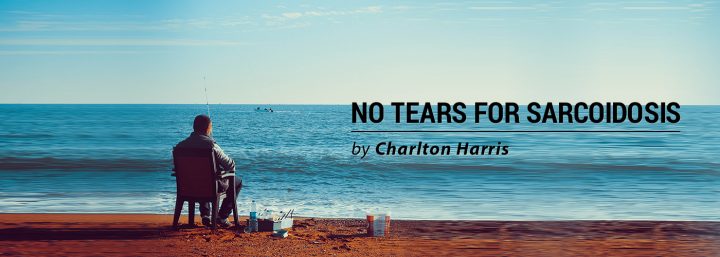My Pulmonologist Offered Some Good Advice About Managing My Health
Written by |

I see my pulmonologist every two to three months to see how I’m doing with my pulmonary sarcoidosis management and to follow up after pulmonary function tests.
Before I see him, I usually get a few X-rays of my chest, and then I’m off to the pulmonary function lab for a six-minute walk test. During the test, the therapists rate my walking ability with and without oxygen. I usually can walk for about three minutes before they have to harness me with oxygen.
After that, it’s smooth sailing — except when they have to raise the oxygen output to compensate for loss during the walk. When it’s over, they rate my overall physical strength and evaluate whether my legs are tired, whether I feel dizzy, or whether I’m out of breath, among other things. Then, they take my blood pressure, and I’m off to see the pulmonologist.
My pulmonologist is a really cool guy, and I’m pleased that I inherited him when my previous one moved to another state. He reviews the day’s tests and compares them with previous tests and notes from my last visit. Surprisingly, he has seen no significant changes, and he has even noticed some progress.
In one test, I walked farther than I normally do, and I didn’t use as much oxygen. I told him that I think the progress is a result of continuing the exercises I learned in pulmonary rehab. It seems that my gym visits a few days a week have helped.
Words of wisdom
Every time we meet to discuss my diagnosis and the various treatment alternatives I should consider, my pulmonologist says, “You don’t want to get too sick.” I assure him that I agree, which is why I continue to do physical activities — including happy hour! His parting words usually are: “Just keep doing what you’re doing,” followed by, “Remember, you don’t want to get too sick before you do anything.”
Putting the pieces together
In January, I saw more doctors and had more tests done than I can remember in my 55 years. When I saw my pulmonologist two weeks ago, he gave me the results of all of the tests I had at the beginning of the year. It was somewhat of a cathartic moment, as I had worried about what the results would reveal. With the results in hand, the only thing doctors noticed was that I needed more vitamin D.
Lately, I’ve thought about what he frequently tells me: “You don’t want to get too sick before you do anything.” That could mean one thing to one person, or it could mean several things to many people. I started thinking about how our emotional and mental health can make us too sick to do anything to possibly help ourselves. Sometimes our thinking process stalls our ability to move forward when we know we should.
I thought about the times I was in the hospital, and admittedly, sometimes it seemed like I wasn’t coming home anytime soon. But I did, and that’s what I should remember. I got better!
I also started thinking about the “what-ifs” regarding my health. What if I didn’t want to participate in pulmonary rehab? How would my life be different? What if I didn’t continue to push myself to go to the gym? What would my mobility be like? The biggest “what-if” is what if I didn’t agree to take all of the tests my doctors required me to take? How would my health change this year, if not for the better?
Sarcoidosis, particularly pulmonary sarcoidosis, is a crafty chronic illness that we need to stay on top of. I’m not getting any younger, and I’m thankful that I’ve been allowed to get a little older. Right now, I’m on the back nine of this 18-hole tournament, so I better choose my shots wisely and correctly. More importantly, I better be proactive and competitive while I’m still able to compete.
***
Note: Sarcoidosis News is strictly a news and information website about the disease. It does not provide medical advice, diagnosis, or treatment. This content is not intended to be a substitute for professional medical advice, diagnosis, or treatment. Always seek the advice of your physician or other qualified health provider with any questions you may have regarding a medical condition. Never disregard professional medical advice or delay in seeking it because of something you have read on this website. The opinions expressed in this column are not those of Sarcoidosis News or its parent company, Bionews Services, and are intended to spark discussion about issues pertaining to sarcoidosis.






Leave a comment
Fill in the required fields to post. Your email address will not be published.